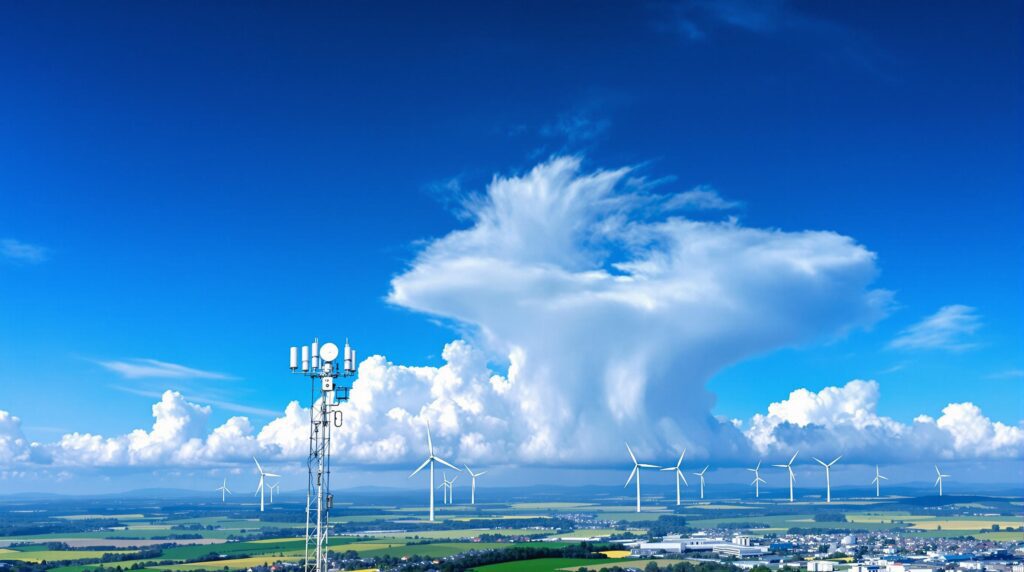In the heart of the Sunshine State, a storm brews—not in the skies, but in legislative chambers. The Florida Senate recently advanced SB 56, a bill that aims to eliminate all forms of weather modification within state borders. But what might at first appear as prudent environmental stewardship carries deeper implications, sparking intense debate and concern among policymakers, scientists, and agricultural leaders.
Behind the Ban: Separating Fact from Fiction
Advocates of this bill, championed prominently by Republican State Senator Ileana Garcia, assert its purpose as a measure to “separate fact from fiction.” According to Garcia, public skepticism and paranoia regarding governmental manipulation of the weather—allegedly through practices like cloud seeding and geoengineering—have clouded the reality of these interventions, despite the lack of solid evidence this occurs in Florida.
Historically, Florida required licenses for those engaging in weather modification efforts, a practice codified since 1957 with penalties for unauthorized activities capped at $500. Garcia’s bill represents a marked shift in policy—abolishing licensing altogether and prohibiting all forms of atmospheric manipulation explicitly. If the bill becomes law, anyone found to be conducting these practices could face criminal charges along with dramatically higher fines reaching up to $100,000, with collected penalties directed towards combating air pollution.
Agricultural Anxiety: Impact Beyond Florida
Yet, critics argue that this approach paints with too broad a brush. Cloud seeding—a practice widely acknowledged and employed in more arid regions for decades to enhance rainfall—is caught in the crosshairs of Florida’s legislative crackdown. Augustus Doricko, CEO of Rainmaker Technology, a company specializing in cloud-seeding solutions, expressed profound concern over the potential nationwide ramifications:
“Florida is a very consequential state within the United States, and if weather modification is banned here, that sets a precedent to deprive farmers in even more arid regions from accessing necessary water via cloud seeding.”
Predictably, agricultural communities dependent on controlled weather interventions for irrigation see this bill as a reckless step backward—particularly in light of increasing drought conditions exacerbated by climate change.
Garcia contends that the ban is fairly targeted, reflecting robust skepticism toward geoengineering’s safety and ethics but critics counterclaim it’s a reactionary policy driven more by misplaced fears than practical environmental concerns. To individuals like Doricko—and to many within the progressive sphere—there must be a careful balance between environmental caution and responsible innovation, especially as humans increasingly grapple with the realities of unpredictable climates.
Echoes of Conspiracy and Politicized Fear
Indeed, beneath the surface of this debate runs a deeper cultural current—a troubling wave of conspiracy theories widely proliferated through social media and partisan platforms. Florida, long known as a significant battleground state in cultural and political debates, often experiences heated ideological battles, with SB 56 appearing as an extension of growing resistance to science-based solutions in conservative policymaking.
This legislation gains precarious momentum in a similar environment of mistrust and misinformation. Misperceptions alleging governmental agencies like the National Oceanic and Atmospheric Administration (NOAA) manipulate weather patterns—even though NOAA has consistently denied involvement—influence and shape policy discourse. It’s a reality that progressive critics draw attention to, cautioning that legislative decisions born out of misinformation or paranoia rarely yield beneficial outcomes.
Progressive advocacy groups argue passionately that policymaking should be grounded in science and evidence, not reactionary fear. Instead of outright bans, they propose grounded regulations and transparent oversight mechanisms that could effectively address legitimate environmental and public health concerns while allowing beneficial practices to continue safely.
A Pivot Point for National Environmental Policy?
Notably, California and other Western states heavily rely on and rigorously regulate cloud-seeding technologies. Hence, Florida’s move to criminalize these specific applications of science-based problem-solving may establish a concerning precedent, steering national environmental discourse away from nuanced, evidence-based decision-making toward sensationalist bans.
Already, this bill’s progress prompts urgent discourse nationwide. Agricultural leaders, environmental experts, and policy scholars watch closely, aware that Florida’s decision might ripple into broader conversations and regulatory approaches across other states.
Yet, hope persists. State senator and Democrat Jason Pizzo playfully teased bill sponsor Garcia at Senate proceedings, suggesting gently that grounding concerns in misinformation might not ultimately serve public interests. Still, he supported the bill—highlighting perhaps the powerful resonance conspiracy theories hold within local politics, making a complicated scenario even more nuanced.
Now, as the proposal moves forward and closer to becoming law, the nation awaits its next vital discussions. Advocates and skeptics alike hold breaths, each side hoping for outcomes reflecting scientific fact, environmental stewardship, and collective good—not partisan misinformation.
Florida’s legislative storm may very well set a significant environmental precedent, underscoring the immense responsibilities policymakers bear—to separate genuine environmental concerns from politically charged conspiracies, and to craft science-based policies fostering sustainable futures.

